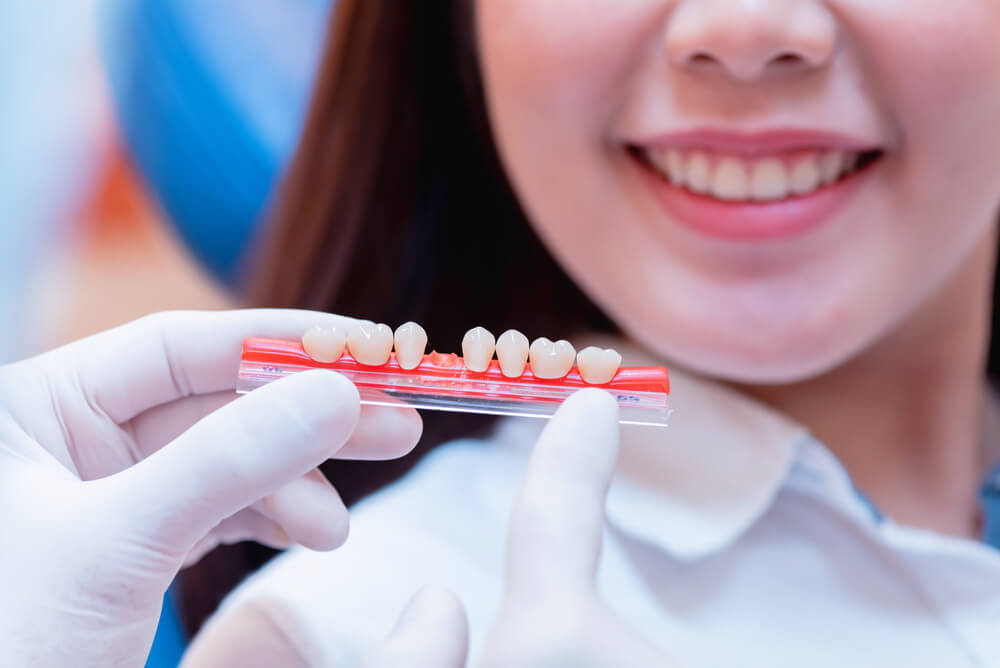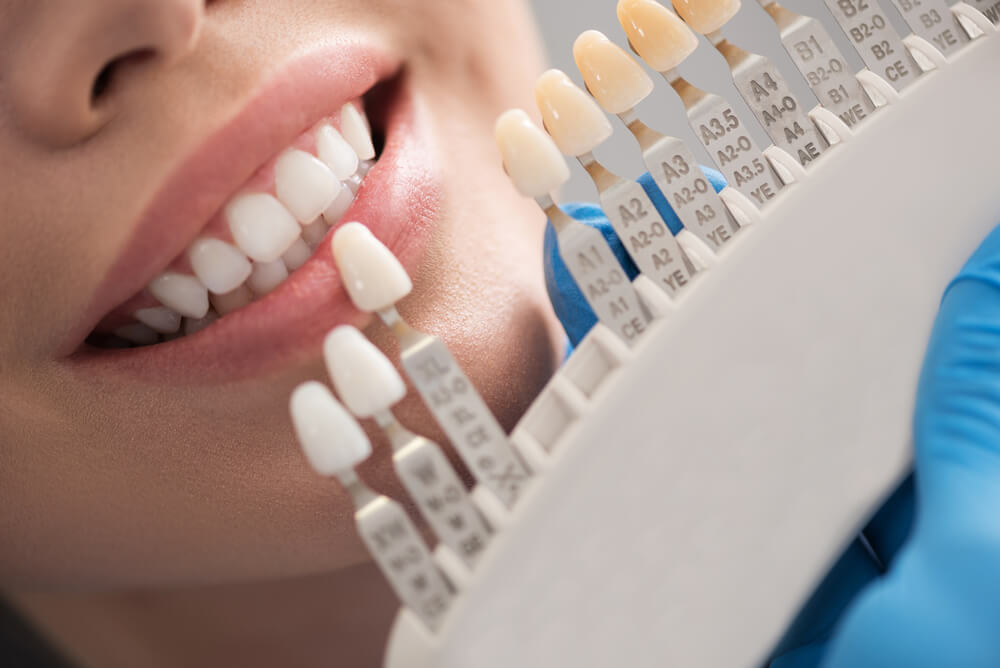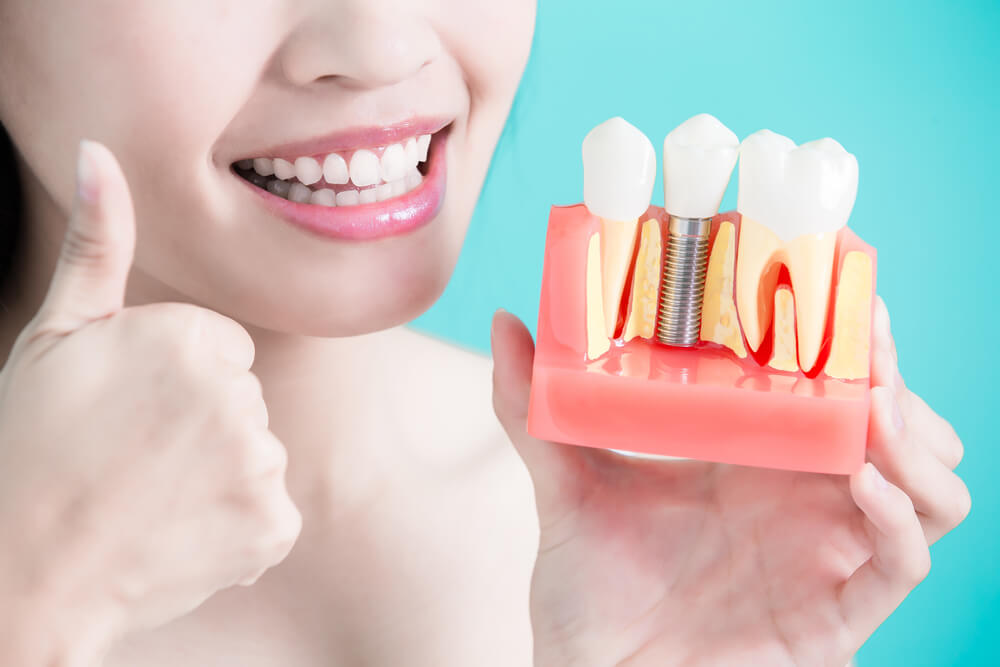A dental crown is an oral procedure employed to create a natural appearance. Done properly, it enhances your smile, confidence, and lifestyle. There are important factors to consider about getting a crown if you’re thinking about the procedure. Read on to learn everything you should know about dental implants crowns.
Why Crown Dental Care?
A crown is a cap designed to cover a tooth. Usually, this is a procedure applied to increase the tooth’s strength and appearance. The idea is to restore the shape and size of the tooth or to enhance its performance. A successful procedure ensures that the crown encases the tooth. Once cemented in place, the tooth is fully protected.
Why Would You Need a Dental Crown in Boca Raton?
The dentist implants a crown when a tooth isn’t in full health. The implanted crown covers, protects, and restores the shape of the tooth.
Here are several reasons why the procedure might be necessary:
- Large cavities where typical fillings won’t suffice
- Missing teeth where a bridge is required
- Coverage for implants
- Teeth are weak, worn down or cracked
- Restoration after root canal
- Discolored or badly shaped teeth that need cosmetic restoration
Dentists often use crowns as a pediatric solution. They’re applied when children have teeth damaged by decay. In other scenarios, an aversion to general anesthesia or poor oral hygiene may require the procedure.

Permanent vs. Temporary Crowns: What’s the Difference?
A temporary crown is put in place while you wait for a permanent crown. Permanent crowns are fully customized to fit an individual’s mouth and teeth. Temporary pieces get implanted to protect the tooth while waiting for the permanent crown.
The temporary piece is a universal crown. It may not fit perfectly, but the dentist will ensure that it’s comfortable for the short-term while the patient is waiting for the permanent.
Once the permanent crown comes in, the patient comes back for the final phase of the implant. The dentist removes the temporary crown before cleaning the patient’s teeth and gums. The permanent crown is then installed with a dental adhesive.
What Are Dental Implants Crowns Made From?
A crown is made from a range of materials. Which material is dependent on a patient’s preference and need. Dentists factor into the material choice things like teeth positioning and the color of surrounding teeth. There’s also the condition of the tooth and its function to take into account.
There are temporary crowns. They are forged in the dentist’s office. They are usually made of stainless steel or acrylics.
Crowns built of stainless steel are temporary solutions. Stainless steel crowns are often used in pediatrics. The dentist sets a stainless steel crown to protect a child’s tooth from decay while waiting for the permanent crown to arrive.
The most common cosmetic choice for crowns is all-ceramic or all-porcelain. These materials provide natural color matches far better than any other material. They are the choice for patients who suffer from metal allergies.
For their natural appearance, all-ceramic and all-porcelain crowns come into play for front-teeth restoration. With appropriate maintenance, these crowns will last for years. The biggest drawback is these materials haven’t the strength of metal crowns.
A recently added new crown material, zirconia is quickly becoming popular. This is due to its longevity and aesthetics. It has durability and strength that significantly minimizes chipping or cracking. Zirconia is likely going to cost more than all-porcelain or all-ceramic crowns, but the result is admirable.
Porcelain is a go-to in crowns as its surface is easily matched to the color of a patient’s tooth. The dentist applies porcelain-fused-to-metal crowns when you need a level of strength to manage a bridge. It’s a top option for use in either the front or back of the mouth. A disadvantage to this material is porcelain-fused-to-metal can break or chip and has the capacity to show wear.
All-resin crowns are inexpensive compared to other materials used for crowns. While a fine option, resin tends to fracture or wear at higher rates than other metals like porcelain fused to metal.
Metal alloy crowns come from high gold or platinum materials or base-metal alloys such as nickel- or cobalt-chromium. These materials are exceptionally durable. They’re capable of withstanding the wear and tear of long-term biting and chewing. The material’s stability reduces the likelihood of breaking or chipping. The only issue is the coloring is difficult to match with teeth. This is why steel caps are usually saved for molars in the back of the mouth.
Do I Really Need a Crown?
There are four common situations where a dentist will suggest the procedure.
- A patient may get a crown in conjunction with a root canal. If a tooth is irreparably infected or decayed, your dentist will likely recommend a root canal. Once that procedure is completed, the dentist implements a crown to maximize strength in the weakened tooth.
- A procedure may be required for cosmetic reasons. Damaged or discolored teeth can have their appearance enhanced with a ceramic or porcelain crown. Patients with a visible filling can also use a crown to hide the distortion in the mouth.
- If a tooth’s structure is at risk, such as when it’s cracked, a crown may be necessary. Unfortunately, it’s not unusual for the defect to lead to increased sensitivity in the tooth. That can be very painful. With a crown implant, you alleviate pain, and the tooth is dynamically made stronger.
- A dental implant could use the crown procedure. You use the crown to fortify a permanent restoration. A dental implant is basically a procedure that saves a tooth from missing its roots. A crown replaces the missing tooth. Once implanted in the jawbone, the crown covers the surface of the implant. This allows normal use of the tooth for common acts such as food chewing.

How Long Does a Dental Crown in Boca Raton Last?
Your crown can last anywhere between 10 and 15 years. The longevity of a crown comes down to several factors. The first is the material. Other factors include the expertise of the presiding dentist and the patient’s lifestyle. Porcelain fused to metal and gold tend to have a lifespan on the long side. All-porcelain and all-ceramic crowns have the shortest.
What Can You Do to Manage Crown Dental Care?
Whether a resin or ceramic crown, you can prolong the life of the crown the same way you prolong the life of your natural teeth, and that’s through maintaining a proper oral hygiene regimen. You brush twice a day, floss, and see your dentist to get regular checkups and dental cleanings.
You can also avoid hard candy, nuts and other hard foods. They may chip the crown. Science has yet to create crowns that will last a lifetime, but you can expect them to last up to 10 years if you take care of them and follow your dentist’s suggestions.
Now, we’d like to hear your thoughts. What questions do you have about dental crowns? Let us know in the comments section. If you’re thinking to yourself “Where can I find crowns near me?” – look no further than Dental and Facial Aesthetics of South Florida! For more information about how to get a crown that can restore your smile, contact us today. We’re open and waiting for you!


